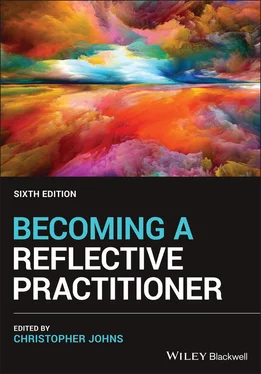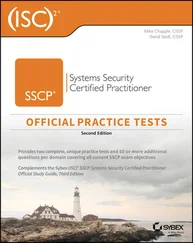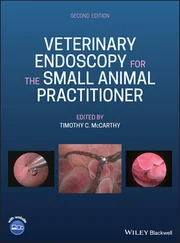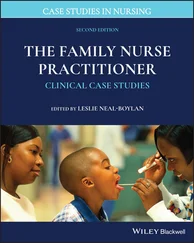Becoming a Reflective Practitioner
Здесь есть возможность читать онлайн «Becoming a Reflective Practitioner» — ознакомительный отрывок электронной книги совершенно бесплатно, а после прочтения отрывка купить полную версию. В некоторых случаях можно слушать аудио, скачать через торрент в формате fb2 и присутствует краткое содержание. Жанр: unrecognised, на английском языке. Описание произведения, (предисловие) а так же отзывы посетителей доступны на портале библиотеки ЛибКат.
- Название:Becoming a Reflective Practitioner
- Автор:
- Жанр:
- Год:неизвестен
- ISBN:нет данных
- Рейтинг книги:5 / 5. Голосов: 1
-
Избранное:Добавить в избранное
- Отзывы:
-
Ваша оценка:
- 100
- 1
- 2
- 3
- 4
- 5
Becoming a Reflective Practitioner: краткое содержание, описание и аннотация
Предлагаем к чтению аннотацию, описание, краткое содержание или предисловие (зависит от того, что написал сам автор книги «Becoming a Reflective Practitioner»). Если вы не нашли необходимую информацию о книге — напишите в комментариях, мы постараемся отыскать её.
Becoming a Reflective Practitioner
Becoming a Reflective Practitioner
Becoming a Reflective Practitioner — читать онлайн ознакомительный отрывок
Ниже представлен текст книги, разбитый по страницам. Система сохранения места последней прочитанной страницы, позволяет с удобством читать онлайн бесплатно книгу «Becoming a Reflective Practitioner», без необходимости каждый раз заново искать на чём Вы остановились. Поставьте закладку, и сможете в любой момент перейти на страницу, на которой закончили чтение.
Интервал:
Закладка:
For a time our life may feel worse than before, as what we have concealed becomes clear. But even as this occurs, we have a sense of growing sanity and understanding, of basic satisfaction. To continue practice through severe difficulties we must have patience, persistence and courage…. we learn in our guts not just in our brains.
Reading these words may give an impression that reflection is akin to therapy. Perhaps it will feel like that at times. It is these deeper reaches of the mind where old stuff lies buried, stuff that is fundamental to the assumptions we hold and which govern our practice. If we are to gain insight, then it is necessary to access and shake up these assumptions. If not, then we may merely scratch at the surface of our experience without meaning. Sometimes it may seem better to reflect superficially rather than get out of our depth. It depends on how significant such feelings are perceived.
Did Past Experiences Influence Me?
An experience is not an isolated moment in time. It is part of a continuous stream of unfolding experiences. How I respond today is strongly influenced by how I responded previously. As Blackwolf and Jones (1996, p. 78) write: ‘If we don’t stay connected and remember the lessons from the past, are we not doomed to repeat them?’
Every experience is unique. It has not been experienced before. So whilst past experiences may seem similar, they are not the same. They can inform but should not dictate the practitioner’s response. The cue prompts the practitioner to link their experience with past experiences, to reflect on the pattern of their day and whether they are stuck in inappropriate behaviours and routines. The cue urges – ‘wake up, pay attention! Get out of auto‐pilot!’
Did I Respond Ethically for the Best?
Every experience reveals the practitioner’s ability to act ‘for the good’ or ethically. Yet, how is the ‘ethical’ known? Some guidance is offered by a code of professional ethics that set out the practitioner’s responsibility to act ethically. These codes are constructed around the ethic of duty, or the way a practitioner should conduct self. An obvious example is that a healthcare practitioner should always act in caring manner and treat the patient with dignity and respect. This also means not causing suffering through careless action.
There are a number of ethical principles that the practitioner needs to appreciate; autonomy, benevolence, non‐malevolence, utilitarianism, justice, equality, and confidentiality set against a background of professional integrity and duty.
Ethical principles often contradict each other. As such, doing what was right always needs to be interpreted within each moment (Parker 1990; Cooper 1991). This may be problematic if practitioners have different values, agendas, and levels of authority to make decisions.
Autonomy
Autonomy is the person’s right to be self‐determining. Seedhouse (1988) views autonomy as the highest ethical principle. In respecting a person, the practitioner actively involves that person in decision‐making about their healthcare as much as possible. In past days, professional autonomy was universally accepted in a capitalist construction of healthcare whereby the patient gave up his rights in return for healthcare (Parsons 1951). Now the situation is very different, although a tension may exist between professional and patient autonomy as to who has the legitimate authority to make decisions.
Without a doubt, people are more informed about their health. Just ‘Google’ any health condition to reveal an overload of information, challenging the idea that professional knowledge is beyond the public’s general understanding. Hence the practitioner’s role shifts from doing things to, at or for patients, to working with them as far as they are able. However, for whatever reason, many people may be passive. As such, the practitioner should act in the person’s best interests.
Acting on behalf of others is termed ‘paternalism’. Benjamin and Curtis (1986) set out three criteria to legitimate such action:
Harm – would the patient come to some harm if I hadn’t act for them?
Autonomy – is the patient able to act for themselves?
Ratification – would the patient at a later time thank me for my actions?
Yet how easy is it to advocate for patients rather than respect their autonomy on the premise that we are the health professionals and we know what’s best for the patient. The risk is that the patient becomes an object we do things to. We do not see the patient just what needs doing to them.
Benevolence and Non‐malevolence
Beneficence and non‐malevolence are enshrined within the Hippocratic oath that doctors should do good (beneficence) and not do harm (non‐malevolence). This is the governing principle underlying all ethical actions. Often it involves an element of risk when outcomes are unpredictable. Hence, to involve patients as possible in their decision making.
Utilitarianism
Utilitarianism is based on the idea of ‘the greatest good’ whereby the needs of the individual are in tension with the needs of society as a whole due to finite resources. Hence the healthcare practitioner is always concerned with managing resources to the best effect. It involves establishing priorities and pitching the need of the individual against the needs of many.
This inevitably creates tension between the person’s autonomy (the right to make decisions about their healthcare) and utilitarianism. It becomes an issue of justice and goodness. Gilligan (1982) argues that women and men have different criteria to judge ‘moral goodness’. Men tend towards that the highest moral claim is justice (utilitarianism) based on the utilitarian ethic, whereas women tend towards the highest moral claim of caring and responsibility that is essentially respecting the person’s autonomy. Gilligan suggests that within a patriarchal culture, the masculine ethic is deemed a higher level of ethical development, that the needs of society as a whole is morally greater than the needs of the individuals within that society because of finite resources. The reader will appreciate the way this tension is played out in everyday life, reflected in the media, about the way decisions are made about healthcare – what is funded and what is not, as supported by NICE. As such, the person’s right to make decisions about their healthcare is constrained by resources available as determined by others with greater authority. Hence the practitioner will reflect on how utilitarianism affects the ability to give patient‐centred care due to finite resources. This, in turn, impacts on number of staff available, how priorities are made, how much time can be spent with one patient, what equipment is available and staff development. It behoves the practitioner to become political to assert necessary resources to create an environment where her vision can be realised. This is very difficult for the individual practitioner and requires community action or wider society action no longer tolerating poor care. The NHS is a constant political battleground. In the 2019 election, the Conservatives promised 50 000 more nurses and 23 billion pounds.
Confidentiality
Confidentiality, as enshrined with the data protection act (1998), aims to protect information about a patient being communicated to others without the patient’s permission. This potentially creates a dilemma for healthcare practitioners’ intent to care for relatives who are anxious for information that can easily lead to a breakdown of trust.
The Ethical Demand (Justice, Equality, and Cultural Safety)
Интервал:
Закладка:
Похожие книги на «Becoming a Reflective Practitioner»
Представляем Вашему вниманию похожие книги на «Becoming a Reflective Practitioner» списком для выбора. Мы отобрали схожую по названию и смыслу литературу в надежде предоставить читателям больше вариантов отыскать новые, интересные, ещё непрочитанные произведения.
Обсуждение, отзывы о книге «Becoming a Reflective Practitioner» и просто собственные мнения читателей. Оставьте ваши комментарии, напишите, что Вы думаете о произведении, его смысле или главных героях. Укажите что конкретно понравилось, а что нет, и почему Вы так считаете.












